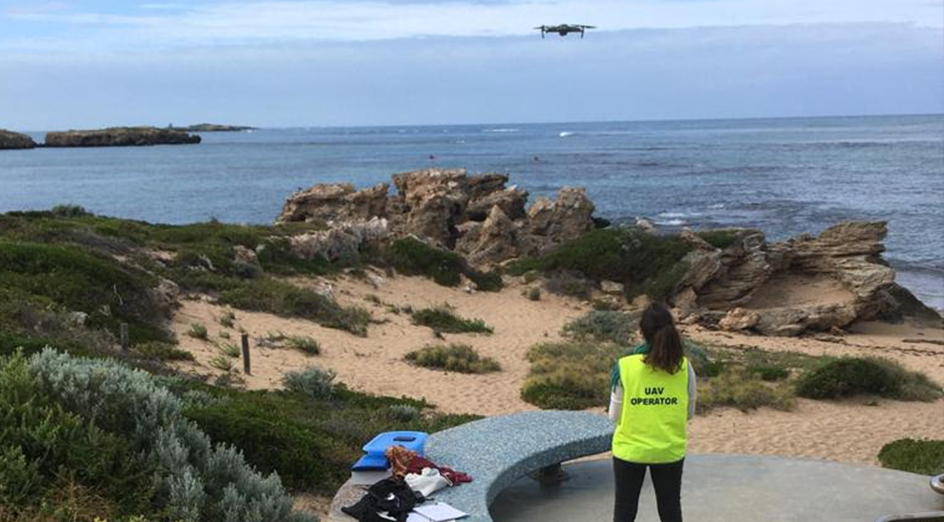A new study by researchers at The University of Western Australia has found a critically endangered species of hammerhead shark in Perth metropolitan waters, further south than previously recorded.
The presence of a recurrent aggregation of scalloped hammerheads (Sphyrna lewini) within Perth metropolitan waters has conservation implications for the species, according to lead author Naima Andrea López, a PhD candidate at UWA’s Marine Futures Lab.
The research team conducted weekly drone surveys over two summers in waters south of Perth to document the status of the aggregation.
The study, published in Austral Ecology, identified the aggregating sharks as scalloped hammerheads, a critically endangered species of hammerhead shark that typically inhabits the tropical region of Australia and has rarely been recorded south of Jurien Bay.
 Image: PhD candidate Naima Andrea López conducting drone aerial surveys.
Image: PhD candidate Naima Andrea López conducting drone aerial surveys.
The species is currently listed as conservation dependent in Australia under the Environment Protection and Biodiversity Conservation Act (EPBC Act), although its conservation status is currently under review.
Ms López collected more than 90 hours of hours of aerial video footage over the course of two years, which allowed her to identify, count and measure the animals.
The aggregation was reliably seen during the months of January and February, and the average length of the sharks was approximately 1.5 metres, making them sexually immature juveniles.
Ms López said that Australia should take a precautionary approach when reviewing the conservation status of the species until the southern extent of the distribution of scalloped hammerhead sharks in Western Australia could be more clearly established.
“The presence of this aggregation so far south appears to be a relatively recent phenomenon that may indicate a poleward shift in the distribution of the species as a result of warming oceans and expose these animals to greater fishing pressure,” Ms López said.
Co-author Professor Jessica Meeuwig said the current catch of scalloped hammerheads in Western Australia was unknown and relying on historical catch composition data to understand current catches may be invalid.
“Until the contemporary composition of commercial and recreational hammerhead catches can be verified, both the State and Federal governments should strengthen protection of the species, especially at their aggregation sites,” Professor Meeuwig said.
The research was supported by the Australian Government RTP Scholarship, The Jock Clough Marine Foundation through the Oceans Institute Robson and Robertson Award and The Holsworth Wildlife Research Endowment & The Ecological Society of Australia.
Media references
Naima Andrea López (UWA Marine Futures Lab, PhD Candidate) 0499 702 484
Simone Hewett (UWA Media and PR Manager) 08 6488 3229 / 0432 637 716
